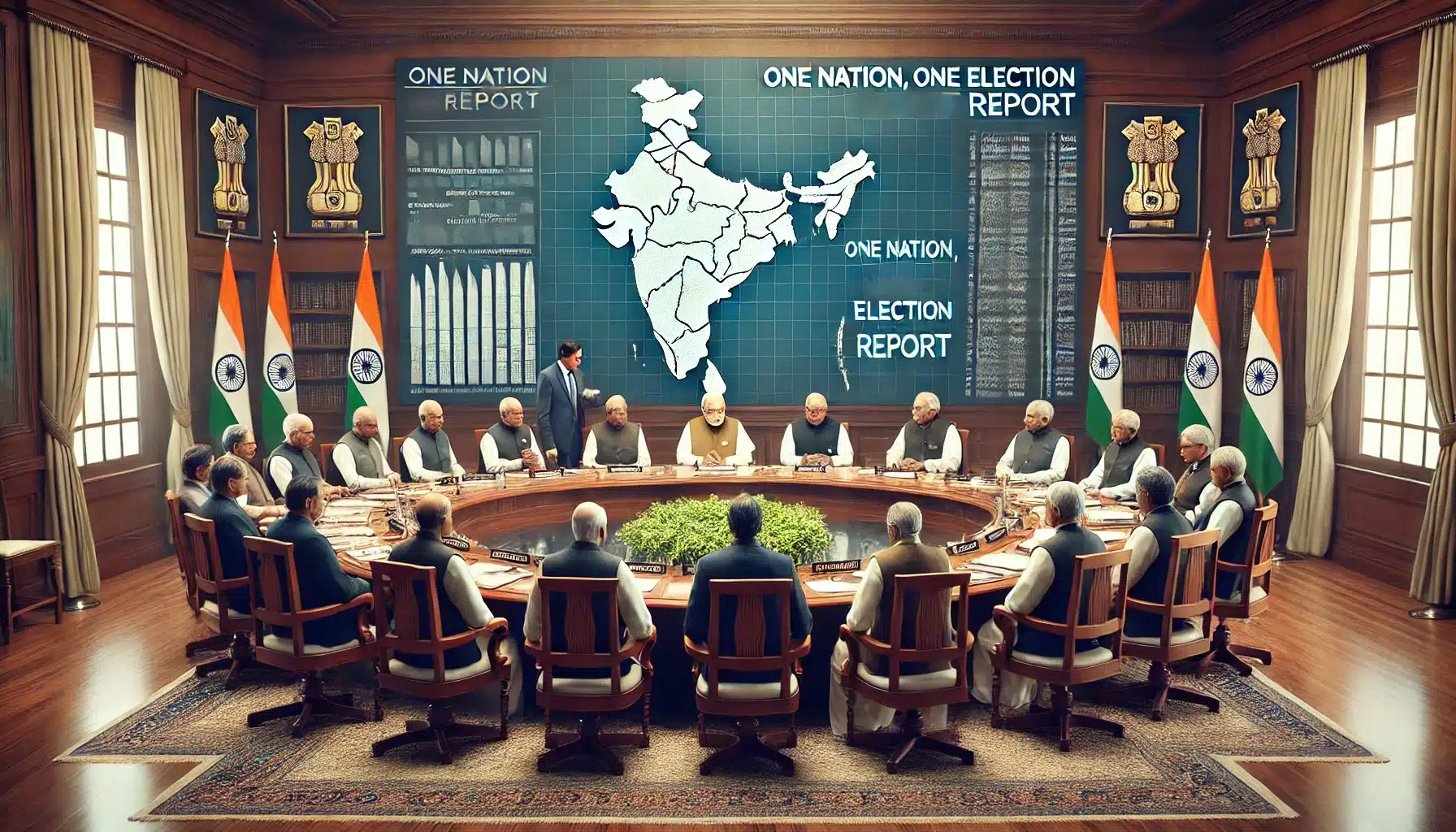The Union Cabinet, under the leadership of Prime Minister Narendra Modi, has accepted the recommendations of the High-Level Committee on simultaneous elections. The Committee, chaired by former President Ram Nath Kovind, proposed constitutional amendments to align the terms of the Lok Sabha, State L

In a historic move, the Union Cabinet, under the chairmanship of Prime Minister Narendra Modi, has endorsed the recommendations of the High-Level Committee advocating the idea of simultaneous elections across India. This initiative, commonly referred to as “one nation, one election,” aims to synchronize elections for the Lok Sabha, State Legislative Assemblies, and local bodies (Panchayats and Municipalities). The proposal, initially submitted by the committee in March 2024, is set to bring about comprehensive changes to India’s electoral landscape and the Constitution.
Background of the High-Level Committee
- The High-Level Committee was established in September 2023, under the leadership of former President Ram Nath Kovind, to explore the feasibility of holding simultaneous elections across the country.
- The Committee also included key figures such as Home Minister Amit Shah, former Leader of Opposition in the Rajya Sabha Ghulam Nabi Azad, former Finance Commission chairperson NK Singh, senior advocate Harish Salve, former Lok Sabha secretary-general Subhash C Kashyap, and former Chief Vigilance Commissioner Sanjay Kothari.
Recommendations of the High-Level Committee
- The Committee’s report, submitted in March 2024, advocates for simultaneous elections to minimize the burden on multiple stakeholders, including the Government, businesses, courts, political parties, candidates, and civil society.
- Two main steps were recommended:
- Simultaneous elections for the Lok Sabha and State Legislative Assemblies.
- Synchronizing elections for Municipalities and Panchayats with the Lok Sabha and State Assemblies, with a gap of no more than 100 days between them.
Proposed Constitutional Amendments
- The Committee recommended the insertion of Article 82A to synchronize the terms of the Lok Sabha and State Assemblies. This article will ensure that all State Assemblies formed after its notification will align their terms with that of the Lok Sabha.
- For example, if Article 82A comes into effect in June 2024, all State Assemblies constituted thereafter will end their terms in 2029, regardless of their individual election dates.
- If an Assembly election is held in 2027, that Assembly will serve only until 2029, the same year the Lok Sabha term ends.
Managing Elections in Special Circumstances
- Article 82A (4) allows for the possibility that if the Election Commission determines that elections cannot be held in a particular State Legislative Assembly at the same time as the General Elections, it may recommend to the President that elections for that Assembly be held at a later date.
- The Committee also addressed scenarios like hung houses or no-confidence motions. In such cases, fresh elections may be called, but the new government would only serve for the remainder of the original five-year term.
- For example, if a government falls in its second year, the new elections would allow the government to serve the remaining three years of the term.
- The Committee proposed amendments to Articles 83 and 172 to enable this process, alongside the introduction of Article 324A for holding simultaneous elections for local bodies.
- The Committee also recommended the formation of an Implementation Group to oversee the execution of its proposals. This group will ensure that the proposed amendments and synchronized elections are carried out smoothly across the country.
Click here to read report.





